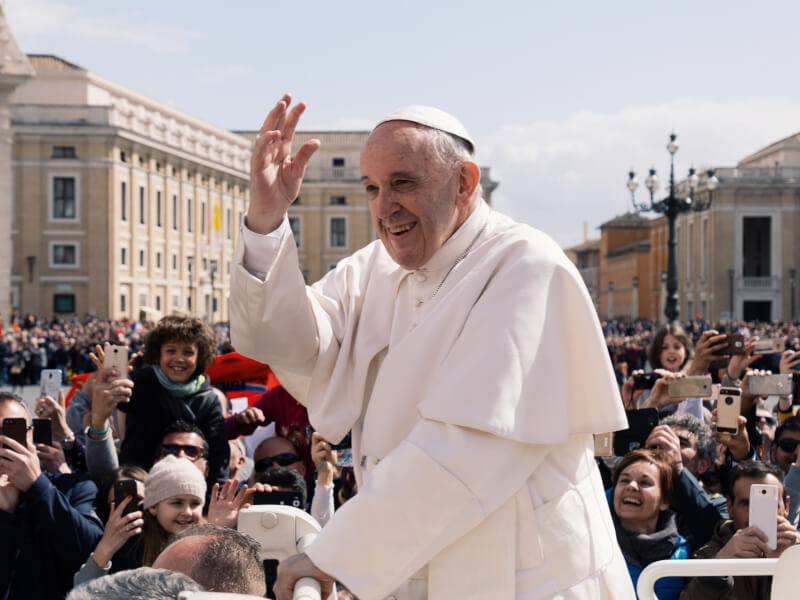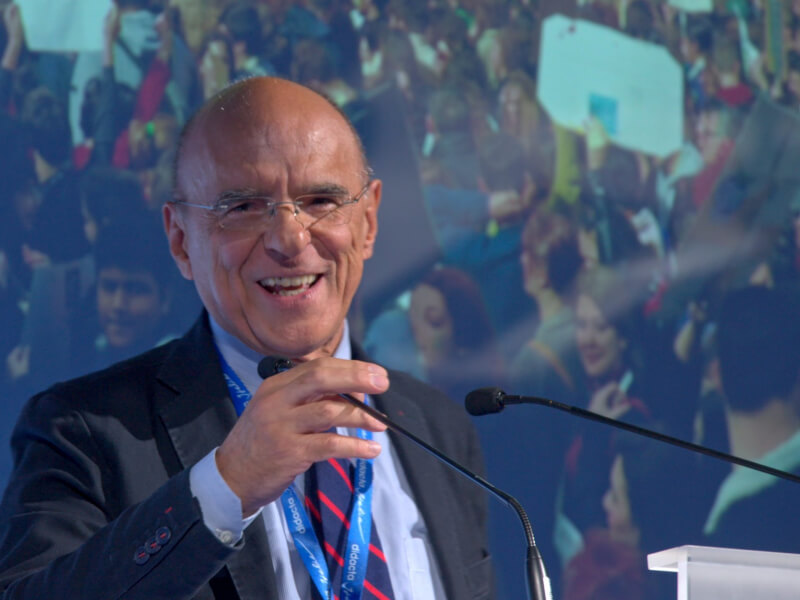17 October 2023 – COP28 is fast approaching and political leadership on climate action is absent. Into this void, Pope Francis has sounded the alarm, urging “strategists” attending the international climate conference in Dubai next month to be “capable of considering the common good and the future of their children, more than the short-term interests of certain countries or businesses”. It is sound, timely advice, and we urge all politicians to follow it. But without thorough reform of the COP system, reaching agreement on climate action and enacting outcomes will remain challenging, if not impossible.
“To say that there is nothing to hope for [at COP28] would be suicidal, for it would mean exposing all humanity, especially the poorest, to the worst impacts of climate change,” writes the Pope in his Laudate Deum statement.
Time is indeed running out for the necessary steps to be agreed and implemented to manage climate change in line with international agreements. It is difficult to see, however, how real progress can be made at COP28. Not only is the host, the United Arab Emirates’, a huge producer of fossil fuels, but the COP system is broken. The flaws in the COP process were on display for all to see at COP27 in Egypt last year and, since then, there have been no substantial reforms to ensure COP28 can deliver on climate action.
In his statement, Pope Francis talks of the need to “reconfigure multilateralism”. He writes: “Our world has become so multipolar and at the same time so complex that a different framework for effective cooperation is required.” Within this new framework, there would be spaces for conversation, consultation, arbitration, conflict resolution and supervision” — “a sort of increased ‘democratization’ in the global context”, he writes.
This vision encompasses the kind of change I and a host of experts, scientists and policy leaders — including Laurence Tubiana, former Climate Change Ambassador for France and CEO of the European Climate Foundation, Mary Robinson, former President of Ireland and UN Special Envoy on Climate Change, Johan Rockström, Director of the Potsdam Institute for Climate Impact Research and Ban Ki-moon, former Secretary General of the United Nations — have been advocating for the COP process since the beginning of this year.
Instead of one huge annual climate conference dominated by governments and, increasingly, by representatives from big corporations come to defend their own interests, the UNFCCC should support smaller, more frequent meetings to keep up momentum on climate action, focus on targeted deliverables and ensure a multitude of voices are heard during official discussions.
Non-state actor solutions and ideas need to be brought into the COP negotiations and not be siloed in sideline events, in particular those raised by indigenous peoples voices and young change actors. Likewise, multilateral banks and financial institutions should have a central role in working sessions to ensure pledges become tangible, deliverable plans that have the financial backing to become reality.
Further, COP discussions and agreements must be based on science. There is an increasing tendency from world leaders, with the UK Prime Minister Rishi Sunak being a prime example at the moment, to talk about supporting net zero ambitions, while at the same time pushing back on more immediate action in line with what scientists show is necessary to keep global warming in check.
Climate change is not interested in political mandates and priorities, and research shows that every degree of warming will worsen the impacts of climate change on the economy, on people and on nature. Talking about meeting a 2050 target, without explaining how emissions will be reduced between now and then, preferring to wait and see if some magical technology will emerge that will cheaply and efficiently suck excess emissions out of the air does not pass muster.
Science shows that the urgent phasing out fossil fuels is vital to achieving climate targets and protecting and restoring nature, and must be at the heart of discussions under the aegis of the COP. The US, the EU and other countries are pushing for an agreement in Dubai on phasing out fossil fuels. COP needs to be able to act agilely so such a deal can be made in the face of opposition from certain countries, like Russia, which has already made clear it would not back a phase-out of oil and gas.
“To the powerful, I can only repeat this question,” writes the Pope, evoking his 2015 Encyclical Letter Laudato Si on climate change and the nature crisis: “What would induce anyone, at this stage, to hold on to power, only to be remembered for their inability to take action when it was urgent and necessary to do so?”
It is a question I hope all negotiators have ringing in their heads in the following weeks as they take decisions that will impact all our futures.
First published on Euractiv






